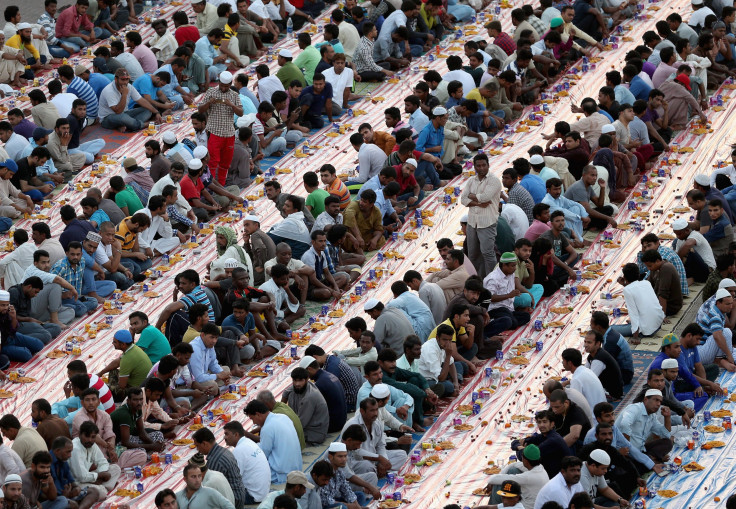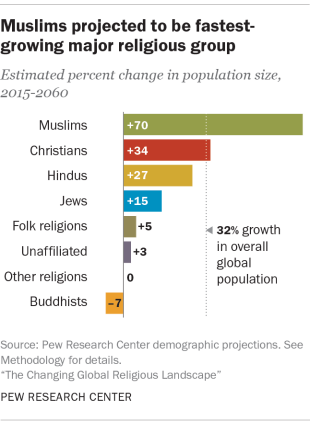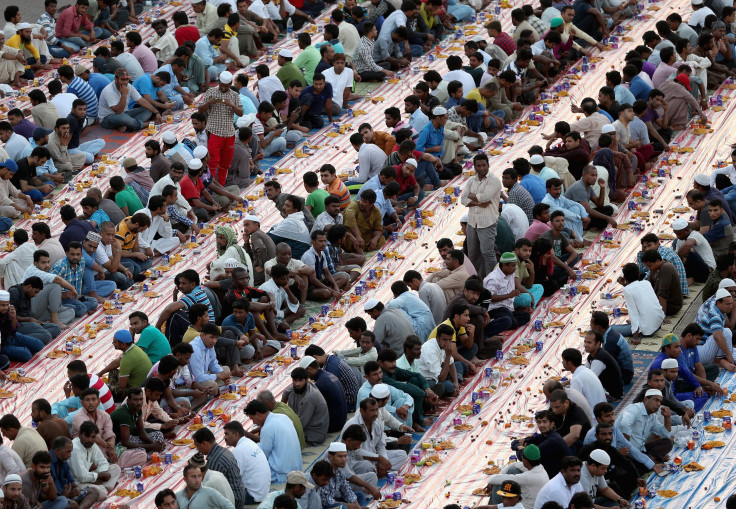How Many Muslims Are In The World? Islam To Overtake Christianity As Most Popular Religion

Muslims are on track to be the fastest growing major religious group in the world and will overtake Christianity in terms of sheer numbers by 2050, according to a study released Friday by the Pew Research Center. While Islam was currently the world’s second largest religion after Christianity, it was growing far faster.
In 2015, there were an estimated 1.8 billion Muslims throughout the world, or 24 percent of the population, according to Pew Research.
“There are two major factors behind the rapid projected growth of Islam and both involve simple demographics,” the report said. “For one, Muslims have more children than members of other religious groups. Around the world, each Muslim woman has an average of 2.9 children, compared with 2.2 for all other groups combined.”
Read: Jews Viewed Most Favorably Among Americans, Muslims Viewed Least Favorably
Muslims were also the youngest of all major religious groups, with a median age of 24 years old in 2015. The median age of all other non-Muslims was 31.

“As a result, a larger share of Muslims already are, or while soon be, at the point in their lives where they begin having children,” the report said. “This, combined with high fertility rates, will fuel Muslim population growth.”
Indonesia had the largest Muslim population in the world. The religion was concentrated in the Asia-Pacific region including places like Indonesia, India, Pakistan, Iran, Bangaldesh, Iran and Turkey, with 62 percent of Muslims residing in the region. In contrast, the Middle East-North Africa region held only around 20 percent of the world’s Muslim population despite the religion having originated there in the seventh century. The United States had a Muslim population of about 3.3 million in 2015.
Despite the rising population, Pew reported that many people said they knew little or nothing about Islam. A February report found that Americans viewed Muslims the “least warmly” when compared with other religious groups. Jews were viewed as the most popular, one point ahead of Catholics and two points ahead of Protestants.
Muslims have also increasingly been the target of discrimination in recent years. Hate crimes against the religious group rose 67 percent in 2015 when compared with 2014.
“The growth and regional migration of Muslims, combined with the ongoing impact of the Islamic State (also known as ISIS or ISIL) and other extremist groups that commit acts of violence in the name of Islam, have brought Muslims and the Islamic faith to the forefront of the political debate in many countries,” Pew said in the report. “Yet many facts about Muslims are not well known in some of these places, and most Americans – who live in a country with a relatively small Muslim population – say they know little or nothing about Islam.”
Following terror attacks in March, many Muslims came forward to denounce the assumption that the religious group as a whole was behind the attacks.
“Why should we keep apologizing?” one person told the Washington Post at the time. “These people do not represent us. They do not represent Islam.”

© Copyright IBTimes 2024. All rights reserved.






















